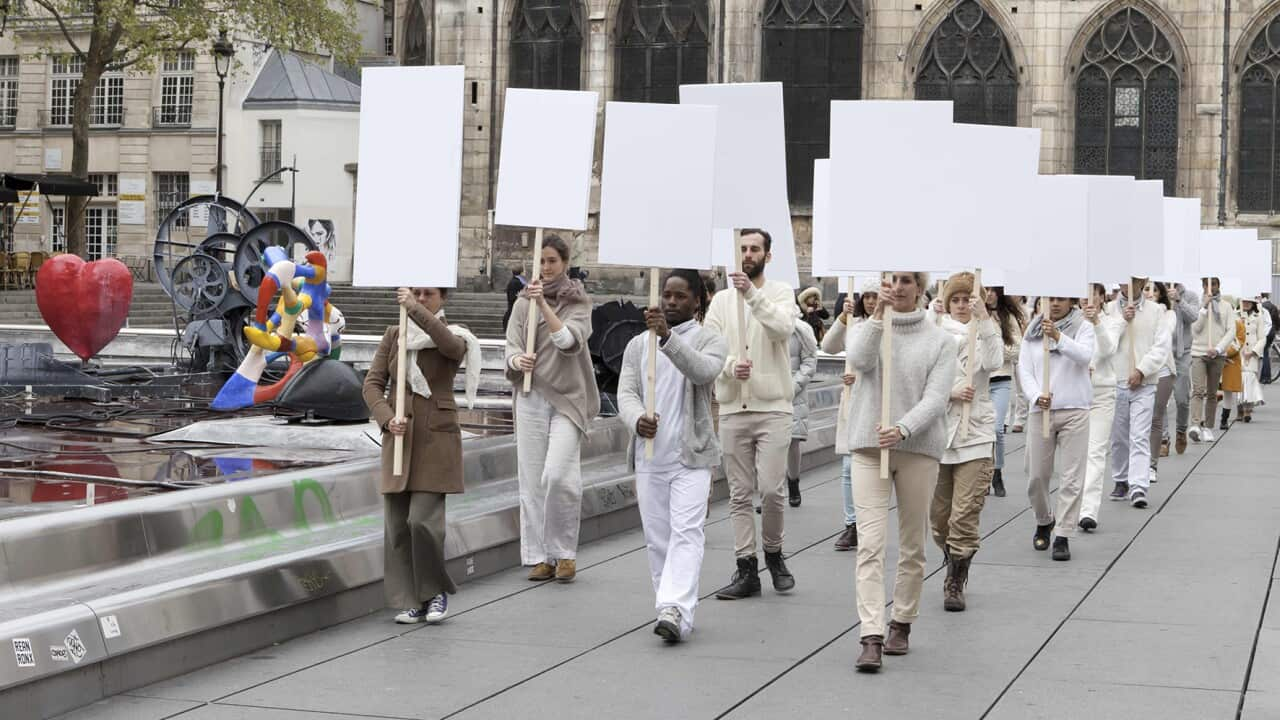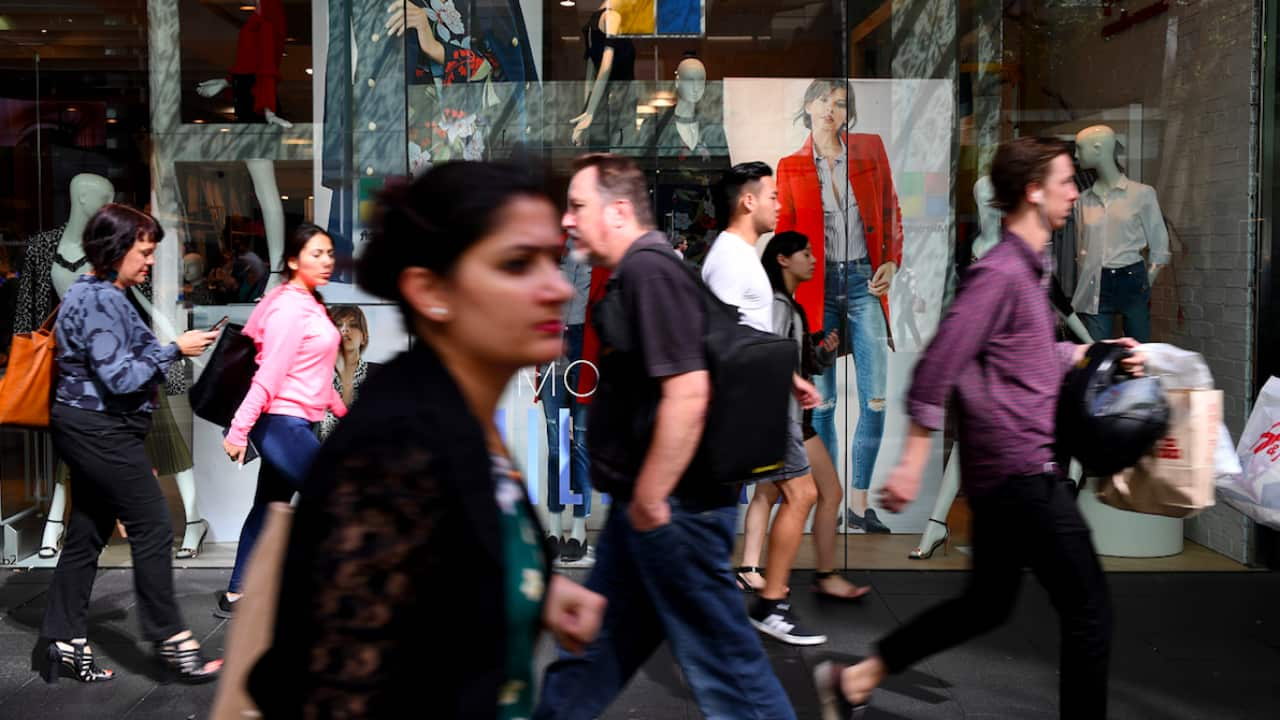If someone gave you a blank placard and asked you to protest something dear to your heart, what would you choose?
It’s a question many Sydney-siders will be asking themselves on Sunday 3 September when renowned French choreographer Anne Collod takes over Sydney’s streets with a – a key event at Antidote: a festival of ideas, art and action, which builds on the ground-breaking Festival of Dangerous Ideas (that it is now replacing).
Recreating the original Blank Placard Dance – a silent procession first imagined in San Francisco in 1967 during the height of the Vietnam War by American artist Anna Halprin – this new piece sees 30 silent and white-clad protestors move through the streets with purpose, defiantly holding a placard which reads… nothing at all. It’s a move that invites passers-by to both embrace their natural curiosity, but also take some time to think about what it is that makes them tick and what makes them angry, says Collod, ahead of her first trip out to Australia.
“It’s a work that can start some pretty heavy conversations, and perhaps one that might inspire a desire to start changing habits and thinking differently,” she says, adding that although sad, Blank Placard Dance is just as relevant today as it was 50 years ago. “Everywhere you look, political tensions are rising and citizens are becoming more engaged with certain aspects of ideology,” she says. “Something like this has the form and the content of political questions, but it doesn’t make a barrier between the political questions and the questions of art or public participation.”
“Everywhere you look, political tensions are rising and citizens are becoming more engaged with certain aspects of ideology,” she says. “Something like this has the form and the content of political questions, but it doesn’t make a barrier between the political questions and the questions of art or public participation.”

French choreographer Anne Collod will lead a 'blank placard protest' as part of the Sydney Antidote festival Source: Pauline Magdeleinat
The 30 people carrying the placards are strangers to Collod when they first meet two days before the big day, she admits. “Diversity is very important to me so I always ask organisers to source ‘protestors’ from a wide variety of backgrounds – different neighbourhoods, social conditions, ages and ethnic backgrounds,” she says.
Everywhere you look, political tensions are rising and citizens are becoming more engaged with certain aspects of ideology.
“Is Australia what you would call diverse?” Yes I tell her. Australia is nothing if not diverse, and with that bit of reassurance Collod exhales. “That’s great, because you want a strong mix to represent your fellow countrymen to make the work that much more powerful.”
Workshops are undertaken with Collod for two evenings plus a dress rehearsal to not only feel at ease with the score (a small marching band follows the protestors), but to develop awareness of posture and movement, and also become familiar with the choreography of the work.
“It might sound simple to hold a placard and walk, but there’s a real trick to holding a blank placard as though it’s carrying the very message that enrages you, motivates you or pushes you along in life,” Collod reveals. “It’s about meditating on what they themselves are feeling and how they can transmit that to their blank placards.”
Since we’ll be spending some time thinking about what would motivate us to march through the streets, I can’t help but put the question to Collod: What would you protest? Collod is silent for a moment, because she bursts out laughing.
“I think, in my case, it would be a long list of things and these could change over the course of the day,” she admits. “Ecology, egality, public health, the conditions of children – I would need more than 30 placards, I think,” she says. “Maybe next time we should do 130?”
will be performed on the western boardwalk of the Sydney Opera House on Sunday 3 September.



